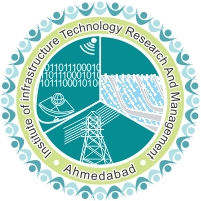Assessing feasibility of peanut shell powder/linear low-density polyethylene for rotational moulding process
Authors :- Khanna P.; Ramkumar P.L.
Publication :- Sadhana - Academy Proceedings in Engineering Sciences, Springer, 2024
Determining the fraction of the thermal energy transferred to the workpiece (fc) in a wire electrical discharge machining (WEDM) holds great significance. This is crucial for numerical modelling, as it allows to anticipate material removal mechanisms and thermal behaviour. In this study, the two metaphor-less Rao algorithms are modified to solve the inverse problem to estimate fc during the WEDM process. They are compared in terms of accuracy and convergence speed. The Rao-1 algorithm demonstrates a high accuracy and a fast convergence rate. Further to evaluate the applicability of the Rao-1 algorithm, two cases were examined: (1) a numerical experiment with simulated temperature and (2) a real-time experiment with temperature data obtained during the WEDM process. In the WEDM process heat energy is transferred to the workpiece from the wire which acts as a line heat source. The estimation of fc is accomplished by solving a two-dimensional inverse problem with a line heat source. Estimation does not need knowledge of the functional form of the line heat source. Real-time experiments have demonstrated that, under the specified machining parameters, 8.25% of the total energy is transferred to the workpiece.

